3 Indian Brands Show Marketing Is About Building an Image, not Selling Your Products
How Indian brands are interpreting the message of Diwali — the festival of lights to create brand awareness and bag more sales.
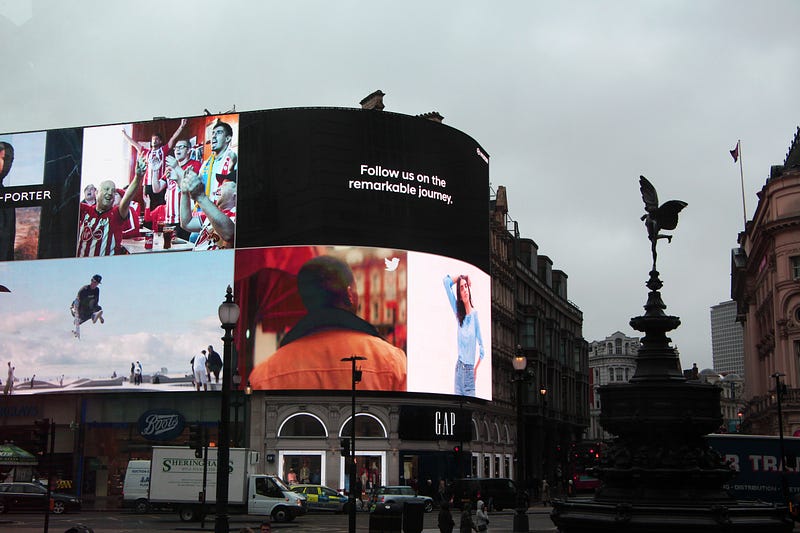
How Indian brands are interpreting the message of Diwali — the festival of lights to create brand awareness and bag more sales.
The holiday season is here, and everyone is gearing up to enter the festive mode. In India, our biggest festival now is Diwali.
It represents the win of good over evil and light over darkness. People aggressively shop for new outfits, decorate their houses, purchase sweets, and buy special gifts for their loved ones. If someone is not shopping in Diwali season, it’s almost as if they’re doing a social crime.
This makes it such a golden time for brands to sell their products. This year, several brands have come up with innovative advertisements questioning societal norms or highlighting social issues. They do it to show what they stand for, which helps them create an emotional bond with people and eventually lead more sales.
Although the ideology is pretty strong and normally all brands use it, not every brand could pull it off. Some find it immensely difficult to stand for something while not offending a group of people.
I’ve been following these Diwali ads, as they’re a treat to my creative mind. And in this article, I’ll discuss three Indian ads that got people to talk about them (both in good and bad ways)
1. Cadbury
In the buying season like Diwali, people usually spend money in big stores even if they’re getting the same product at a cheaper price in local stores. This causes a major issue for small businesses as they can’t generate enough profits to celebrate the festival happily.
In recent years, this issue caught the limelight and people started promoting small businesses. But it hadn’t seen much traction and pandemic made it worse. Small stores are barely able to survive in many parts of the country.
Cadbury India took the responsibility to do something about this issue and made it the central theme for their Diwali Campaign.
They launched “Not Just A Cadbury Ad”, where they shot a 2.18-minute long video of Shah Rukh Khan (the king of Indian Cinema) and used machine learning to allow local stores to create their own version of the ad, as if the actor is promoting their store.
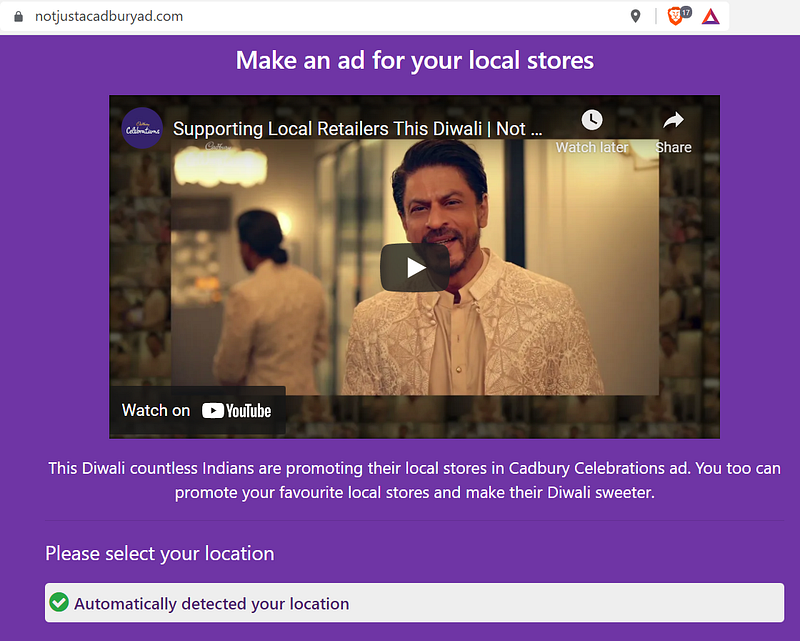
Any registered store in India that falls in the category of footwear, fashion, electronics, and groceries has been given the power to make India’s biggest celebrity their brand ambassador.
They just need to go here and enter their details.
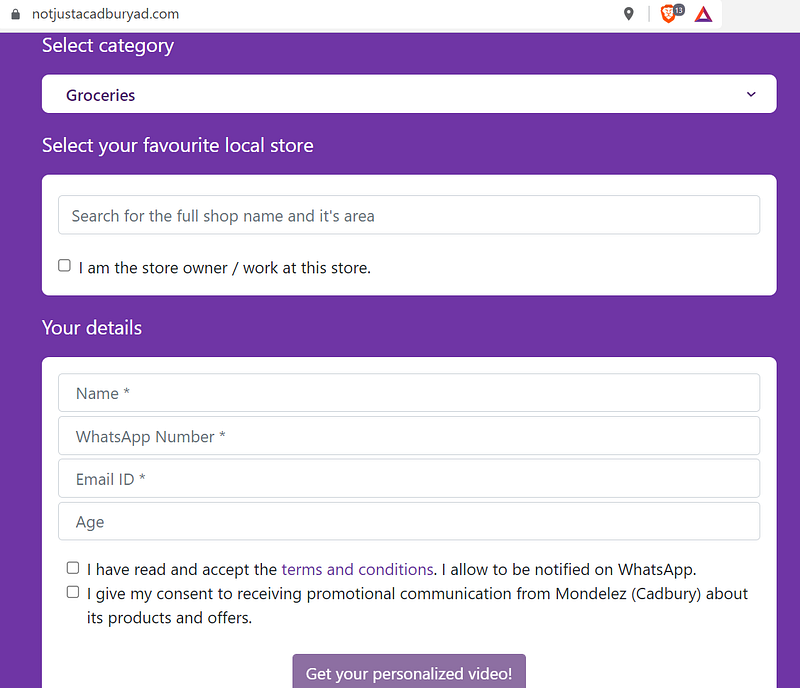
Their personalized ad is delivered to their WhatsApp in just a few minutes.
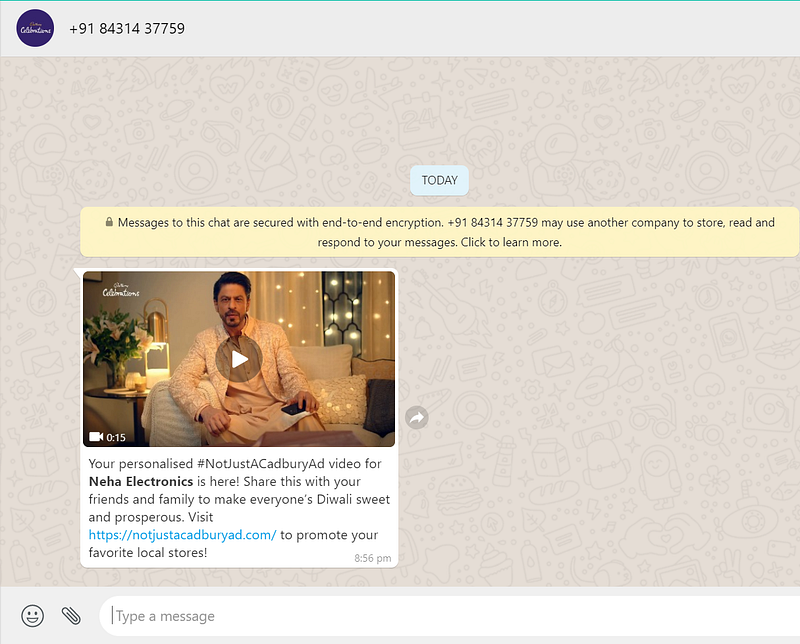
How often do you see a brand making an ad to help other businesses grow?
The idea was unique, and it trended all over social media. People welcomed it with open arms and Cadbury got viral all over the place.
Key takeaway
Note that they didn’t promote their chocolates here, which is their main product. Instead, they spent crores in building this image that they are very supportive of local businesses, and who doesn’t love a company that supports local businesses?
I don’t know their sale numbers, but I can predict they’re huge.
2. Candere
Log kya kahenge? (What will people say?)
Duniya kya sochegi? (How will the world think about you?)
Log baatein karenge (People will talk negative of you)
These are some of the most infamous Indian dialogues to induce the fear of society inside you. It trains you to seek validation from society, else you’ll be virtually boycotted. This is a huge fear among Indians and many compromise their happiness and growth to please the people who don’t even matter.
But what if you want to design the life of your choice and do things that don’t go by the social rules?
This is what Candere is advocating in their Diwali ad.
They show a couple with a huge age difference, trying to defend their love in front of their friends. While the friends don’t think it to be a good idea and bring in the dialogue “baatein hongi” (people will talk about you) to warn them for the risky road ahead. But the couple takes it in a positive way, where the man offers beautiful Candere earnings to his woman, saying “obviously people will talk, after all these earrings look so beautiful”.
This ad leaves you with a smile and cheers you up with a positive thought: jab aapme kuch baat hogi, toh baatein toh hongi hi (people will only talk about you when there’s something special in you)
This is one of the most beautiful ads I came across. You can see it got premiered on 7th Oct, and till now it has caught 1.8 million eyeballs.
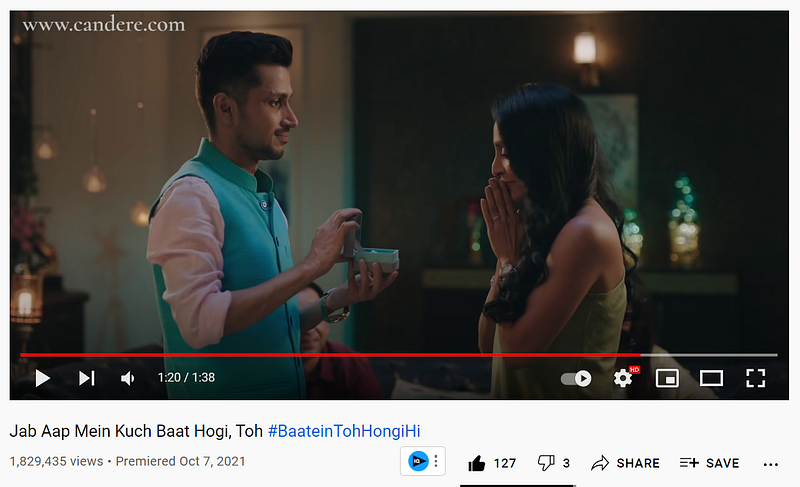
Key takeaway
While the ad is to promote Candere jewelry at the end, it’s also advocating a way of life. There’re making anyone who wears their jewelry feel special and not let what others might think of them as a hindrance to their happiness.
This is such a wonderful way to advertise!
3. Fabindia
India is home to 6 million+ religions and faith, with six main religions. The top two are Hindu and Islam. And like any other country with common inter-religious disputes, India also faces the religious war between Hindus and Muslims from time to time.
This continues even on Diwali.
Although it’s a Hindu festival, there’s no restriction for people from other religions to celebrate it. But sometimes Muslims aren’t welcome.
This is the issue Fabindia was trying to highlight with its Diwali ad, to empower the united culture of India. They named their campaign using the Urdu language “Jashn-e-Riwaaz” (celebration of tradition), which is normally spoken by Muslims.
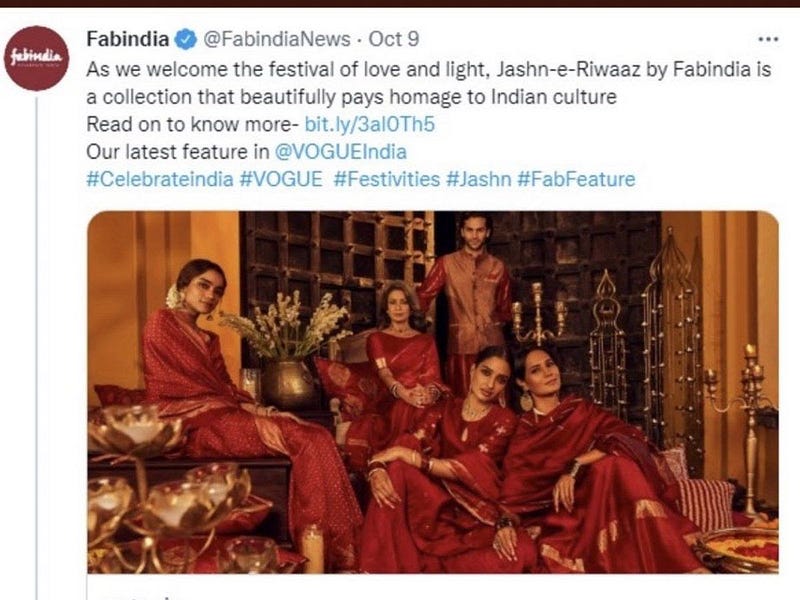
This stirred up emotions of people with strong Hindu beliefs, and they started an anti-campaign of #boycottfabindia on Twitter for their attempt of making Diwali ‘not Hindu enough’.
According to The News Minute, Fabindia was trolled on social media for “unnecessarily uplifting secularism” and hurting religious sentiments by ‘defacing’ a Hindu festival using an Urdu phrase for a festive collection.
Even ministers responded negatively to the ad, which pressurized Fabindia to finally take it down and change their campaign name to “Jhilmil si Diwali” (twinkle-like Diwali), in the Hindi language which is the main language of Hindu.
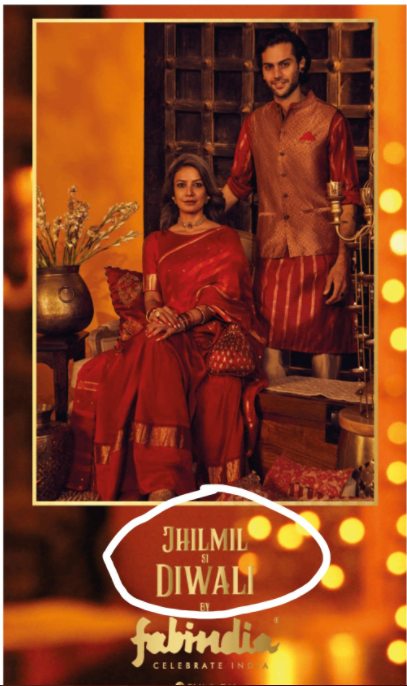
People think it’s a win for them that a big brand took down its campaign because of their pressure, but do you think it’s really a win?
Diwali is a celebration of good over evil. If people of another religion are trying to celebrate it, what’s wrong with it?
The brand was only trying to celebrate the feeling of unity and to highlight that festivals know no religion and everyone is free to celebrate. If someone wants to make it about the tradition and gift-giving and not the religious aspect of it, why would it hurt anybody?
Even though Urdu is an Indian language, people saw it as an “Islamification of Hindu festival”. Youth ki Awaaz (a reputed Indian media platform) also raised this issue in their latest tweet and blogpost.
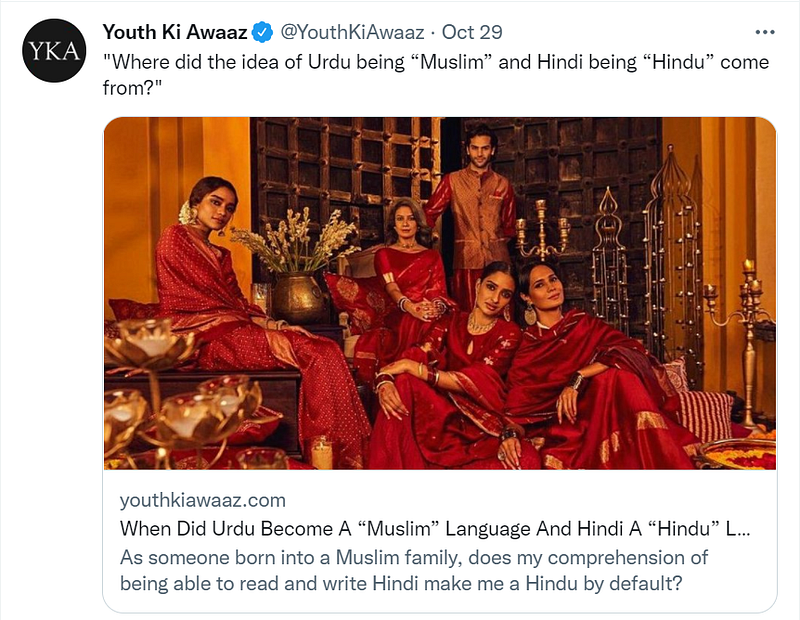
This shows how religiously blind people are and how much they position religion over nationality.
Key takeaway
Fabindia unintentionally got people to fight over social media by challenging each other’s religious beliefs and registered a ton of publicity (bad publicity is also publicity in a way). I never heard of this brand before, but this outrage made me aware of them. This also made me write about them in this article, which is also free publicity.
Do you think the marketing department of Fabindia would be disappointed with this so-called failed attempt?
Final Words
Marketing is no longer about selling your products, but building a brand identity that customers relate with and are proud to flaunt. In this article, I have shared three such ads:
- The Cadbury “Not Just A Cadbury Ad” to promote small businesses.
- The Candere ad that circled around the theme of “people will only talk about you when there’s something special about you”, to go against the infamous dialogues of “what will people say if you do it”.
- Fabindia ad that tried to celebrate the power of unity, but got rejected by the masses.
Which one of these was your favorite? Let me know in the comments below.
